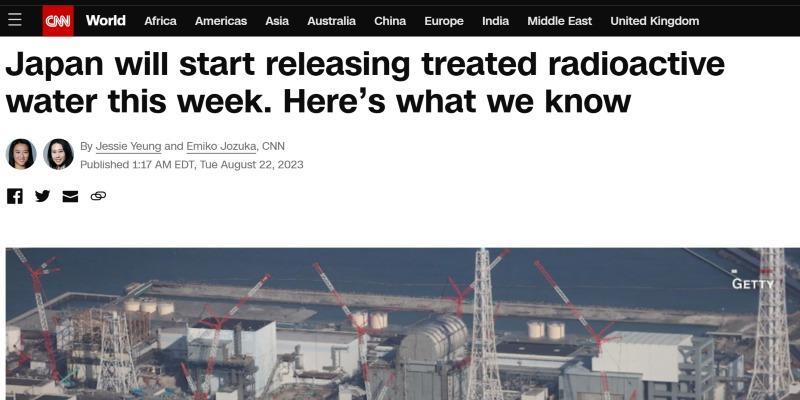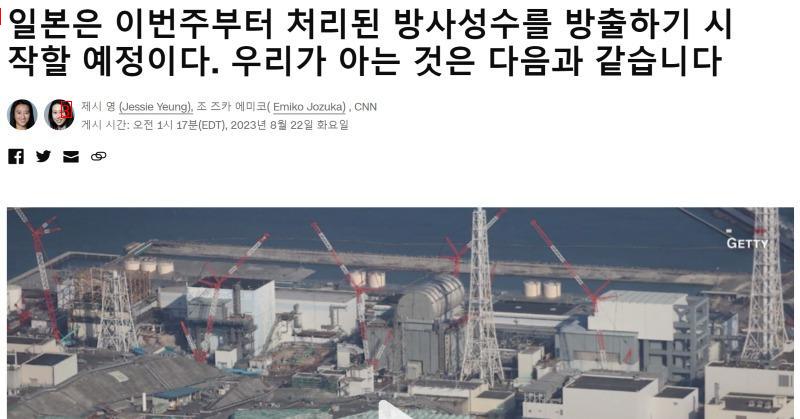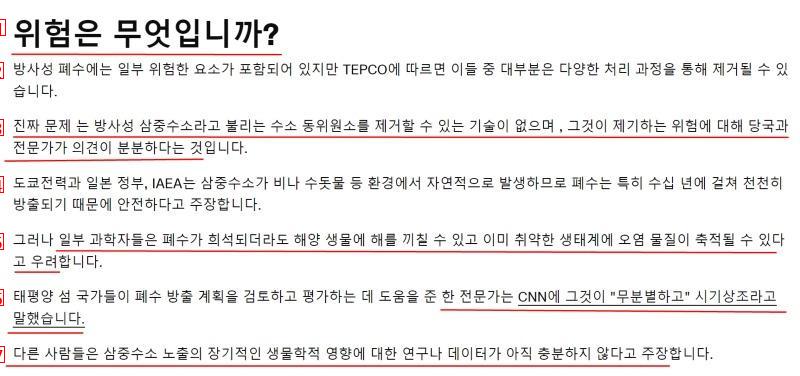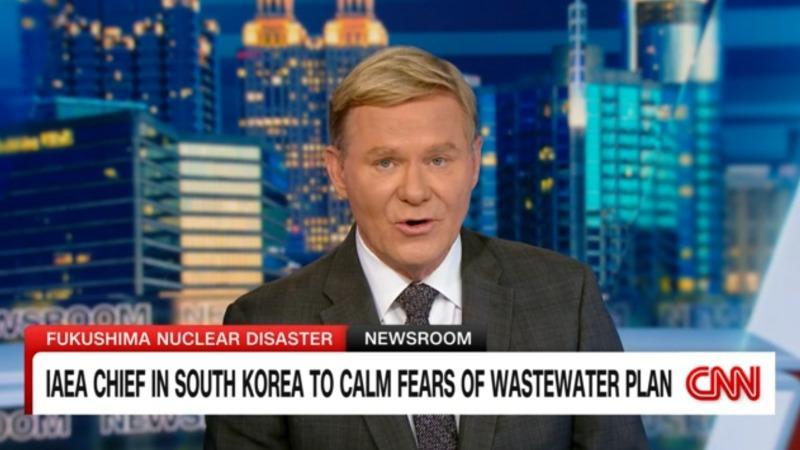
image text translation
(1)Japan will release radioactive water from this week
image text translation
(2)Here’s what we know
(3)Jessie Yeung Jozuka Emiko Jozuka CNN Post time 1:17 a.m. EDT Tuesday, August 22, 2023
(1)What are the risks
image text translation
(2)Radioactive wastewater contains some dangerous elements, but according to TEPCO, most of them can be eliminated through various treatment processes
(3)The real problem is that there is no technology that can remove a hydrogen isotope called radioactive tritium, and authorities and experts are divided on the risks it poses
(4)TEPCO and the Japanese government IAEA argue that tritium is safe because it occurs naturally in environments such as rain and tap water, and therefore wastewater is released slowly, especially over decades
(5)However, some scientists are concerned that even if wastewater is diluted, it could harm marine life and accumulate pollutants in already vulnerable ecosystems
(6)An expert who helped Pacific Island countries review and evaluate wastewater discharge plans told CNN it was thoughtless and premature
(7)Others argue that studies or data on the long-term biological effects of tritium exposure are not yet sufficient

image text translation
httpseditioncnncom20230822asiajapan-fukushima-wastewater-explainer-intl-hnkindexhtml
